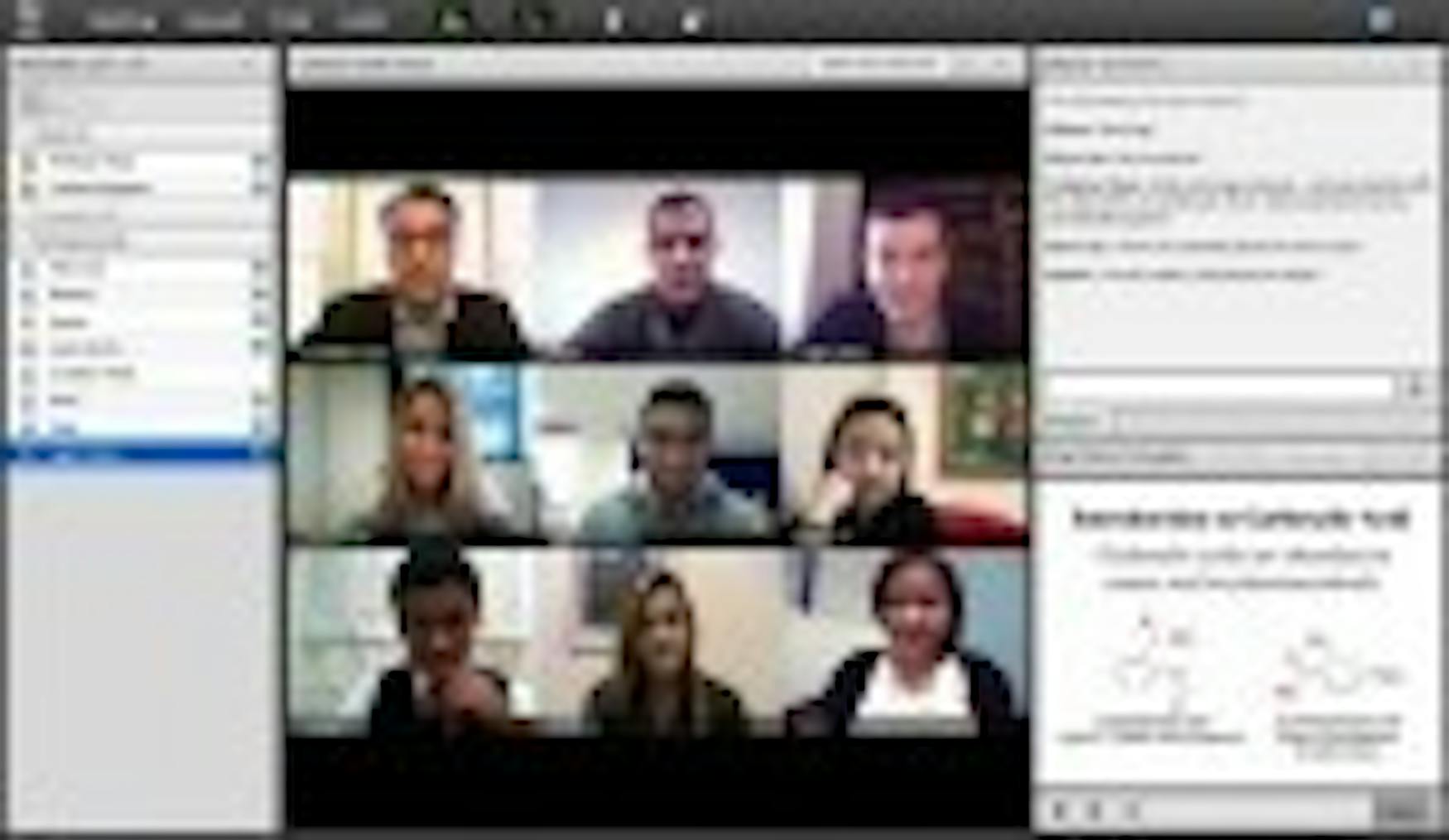University to offer online classes
Earlier this week, Brandeis began the first steps toward an experimental new frontier in technology-aided education by announcing that the University has joined a consortium of schools in a program called "Semester Online." Starting next fall, students will be able to take a semester of classes online if they are abroad, doing an internship, staying at home or for whatever reason not able to be on campus.
"Our goals in this are to provide flexibility in education, to expand opportunities for our students to be able to take advantage of online learning," said Dean of Arts and Sciences Susan Birren at a faculty meeting Nov. 9.
The consortium of 10 universities, which includes Duke University, Northwestern University, and Washington University in St. Louis, is partnering with a company called 2U, "a private online education company based in Landover, Maryland," according to a BrandeisNOW release. The universities involved are being considered founding members-meaning that there will be openings for more schools to join once the system is developed and kinks are worked out.
The arrangement is still in the early planning stages, said Birren in an interview with the Justice, but conversations will begin soon and proceed rapidly throughout the spring and summer in time to have courses prepared by fall 2013.
Initially, each of the 10 consortium universities will likely provide three undergraduate courses, according to Birren, so the initial course schedule on 2U will include approximately 30 courses. 2U already has several graduate school programs, but this arrangement with the consortium represents the company's first foray into undergraduate education.
Birren said that each course on 2U will have "both synchronous and asynchronous" aspects, meaning that students will have certain times during the week when they will have to be present via webcam for a lecture or discussion section, but that there will also be work for them to do on the website at any time during the week. Each "section" or lecture will include no more than 20 students, and will, like any old-fashioned class, be taught by professors from Brandeis or any of the 10 consortium schools.
While Birren said that the University will likely give course credits for the 30 initial courses that will be offered on the website, she said that there may be some restrictions and that it is yet to be determined whether these courses will count toward University or major requirements.
"There are systems already in place" for dealing with these questions, she said, comparing a 2U course to a course at an institution abroad that must be approved by the University and individual departments if it is to count toward requirements.
Though starting this fall students will only be able to take a full semester of online classes, rather than pick and choose individual classes, Birren said that in the future, it might be possible to just take one or two at a time as the system evolves.
While the financial details of the arrangement are "complicated and still being worked out," according to Birren, students who are paying University tuition will not have to pay extra for online courses. At the faculty meeting, she said that the arrangement should be "at least neutral" for the University, and could potentially even make a profit.
The 2U model is one of the first of its kind, though some universities offer courses on platforms such as a website called Coursera, which according to the website is "a social entrepreneurship company that partners with the top universities in the world to offer courses online for anyone to take, for free."
Coursera counts such top-tier universities as Columbia University, Brown University and University of Pennsylvania among its 33 partners. As of right now, participants who take classes on Coursera are not able to get credit from their courses, though the company recently announced that five of their courses are being evaluated by the American Council on Education, and could be deemed worthy of credit.
Birren said that the massive open online course model that Coursera uses is very different from what 2U offers.
"In MOOCs, most people don't finish the classes," she said, while through 2U, students will be required to complete the course to get University credit.
Online learning has its critics, including Mark Edmundson, a professor at the University of Virginia, who wrote in an op-ed piece for The New York Times that said, "A real course creates intellectual joy, at least in some. I don't think an Internet course ever will."
He continued, saying that "Internet learning promises to make intellectual life more sterile and abstract than it already is-and also, for teachers and for students alike, far more lonely."
While Birren said that different students have different learning styles, she thinks that "this may be the best possible way to learn for some students," and that the arrangement will at least greatly increase educational flexibility.
In an email to the University community, Birren and Provost Steve Goldstein '78 expressed their excitement about the plan.
"Distance learning is clearly a part of our future, and we need to find ways to do it well, while also preserving the distinctive character of a Brandeis education," the message read.
"Semester Online is an important step in that direction. We look forward to implementing this initiative. We are sure it will be a valuable learning experience for all of us who participate."



Please note All comments are eligible for publication in The Justice.